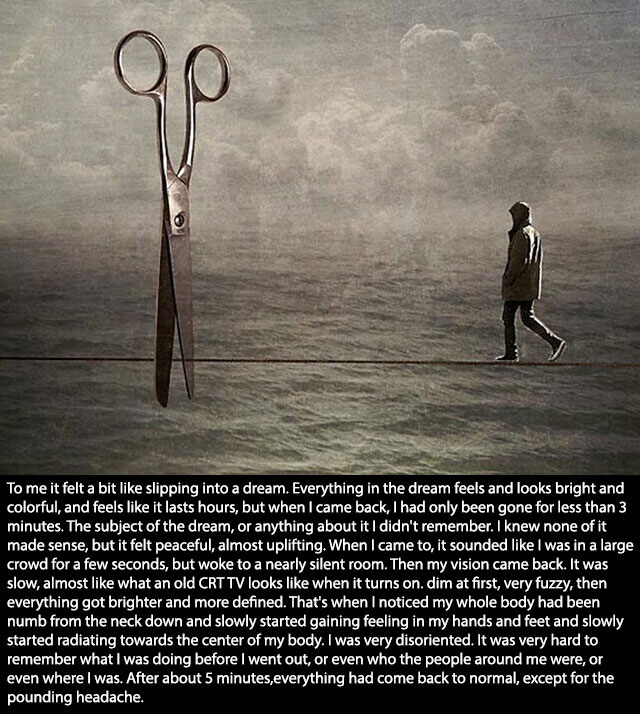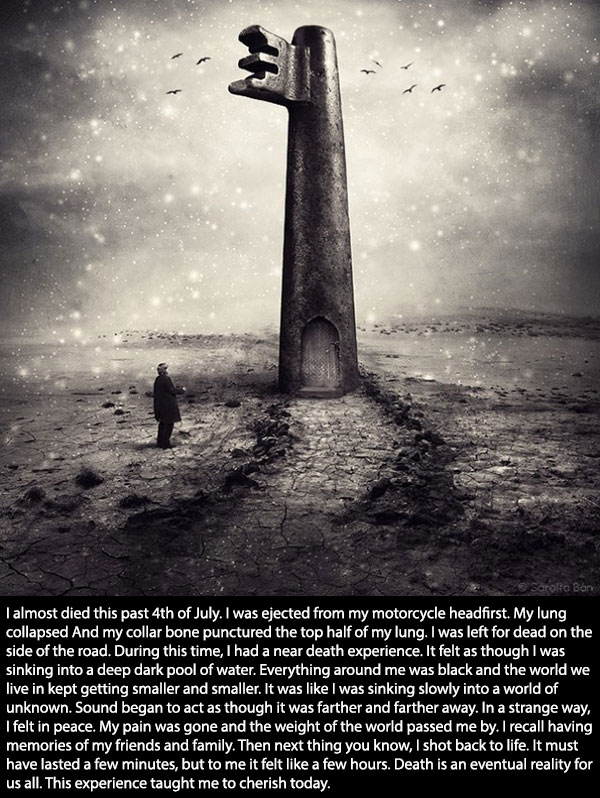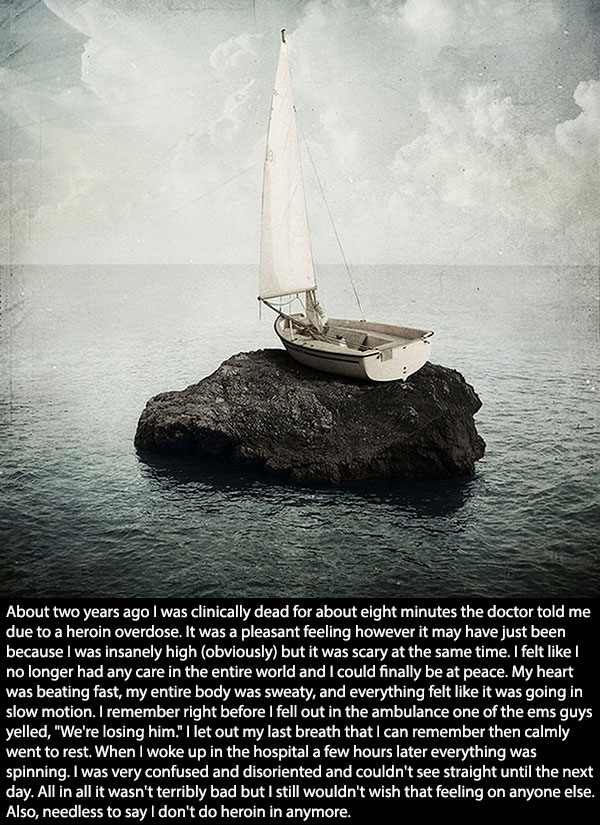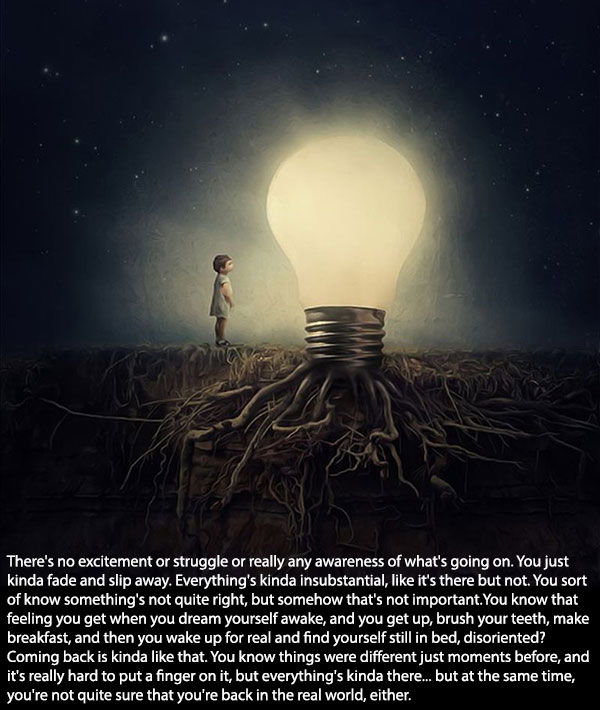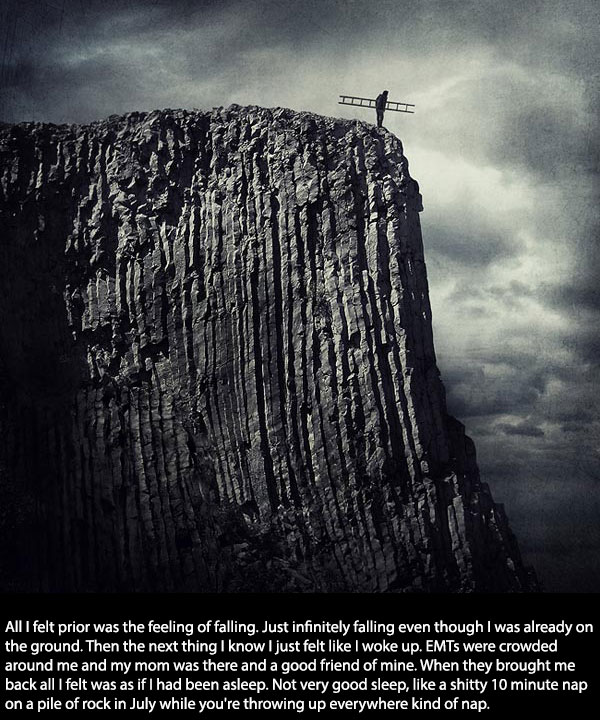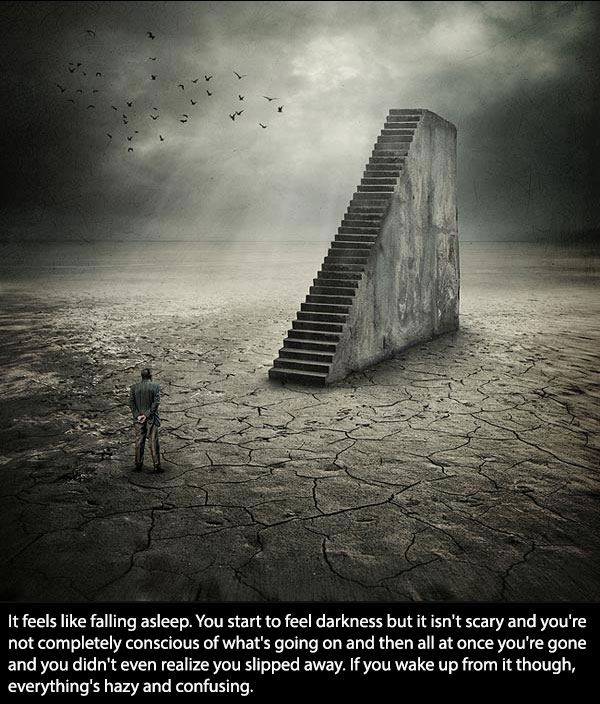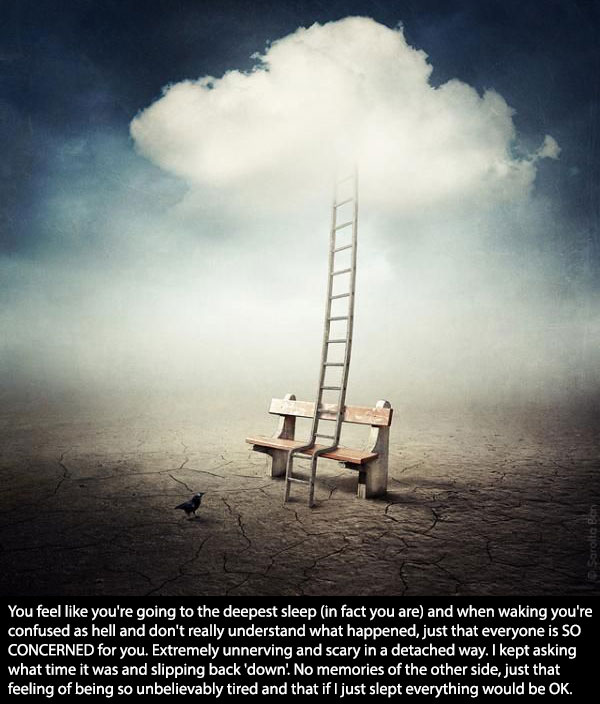Many of us have probably wondered what it is like to die. When the time comes, will we feel an overwhelming fear, or a tranquil sense of peace? Morbid question, it is. That is something none of us will ever know for sure until we actually do experience it.
The following stories of near-death experiences have been shared by people on Reddit that should help shed some light.
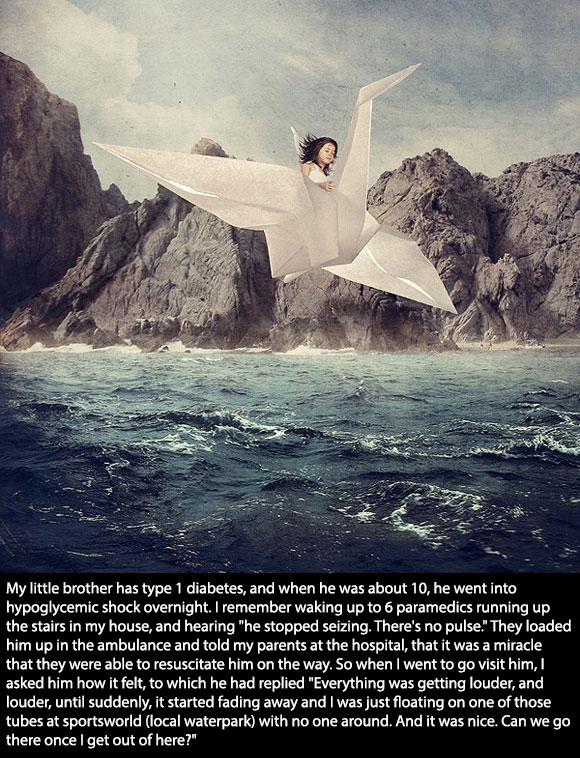
Illustrations by Sarolta Ban
So, this is what dying feels like! In case you still have questions, the experts at New Scientist magazine have done some research on the topic, drawing evidence from advances in medical sciences and accounts from lucky survivors. Here are some of their conclusions:
Drowning:
Victims first panic and try to hold their breath, typically for 30 to 90 seconds. Survivors have reported a “tearing and burning” sensation as water enters the lungs – but it is quickly followed by a feeling of calmness and tranquility. Oxygen deprivation results in loss of consciousness, the heart stopping and brain death.
Heart attack:
A “squeezing” chest pain, or feeling of pressure, is the most common symptom as the heart muscle struggles for oxygen. Disruption of the normal heart rhythm effectively stops the heart beating. Loss of consciousness can occur in about 10 seconds and death can follow minutes later.
Loss of blood:
Marked by several stages of “hemorrhagic shock”. Anyone losing 1.5 liters of blood feels weak, thirsty and anxious. By the time two liters are lost, people experience dizziness, confusion and eventual unconsciousness.
Electrocution:
A household electric shock might stop the heart, leading to unconsciousness after around 10 seconds. Higher currents through the heart or brain can produce almost immediate unconsciousness. However, it has been claimed that prisoners executed with the electric chair may actually have died from heating of the brain or suffocation.
Fall from a height:
Survivors of great falls often report the sensation of time slowing down. A study of 100 suicide jumps from San Francisco’s 246-ft-high Golden Gate Bridge found numerous cases of instantaneous death involving collapsed lungs, exploded hearts or damage to organs from broken ribs.
Hanging:
Hanging suicides and old-fashioned executions cause death by strangulation. This can lead to unconsciousness in 10 seconds but a poorly placed noose may result in many minutes of suffering. “Long drop” hangings are designed to break the neck. But a study of the remains of 34 prisoners executed in this way found that four-fifths died partly from asphyxiation.
Fire:
Burns inflict intense pain, and boost the skin’s pain sensitivity. As superficial nerves are destroyed, some feeling is lost – but not much, according to experts. But most people who die in fires are actually killed by inhaling toxic gases and asphyxiation.
Decapitation:
Beheading can be swift and painless but consciousness is believed to continue for a short time after the spinal cord is severed. Experts have calculated that the brain might remain functioning for seven seconds. Reports from guillotine executions in France cited cases where movements of the eyes and mouth were seen for up to 30 seconds.
Thanks to the people who shared their personal experiences, we can get some idea on the sensations a person experiences in various ways of dying. Share these stories with others below.
